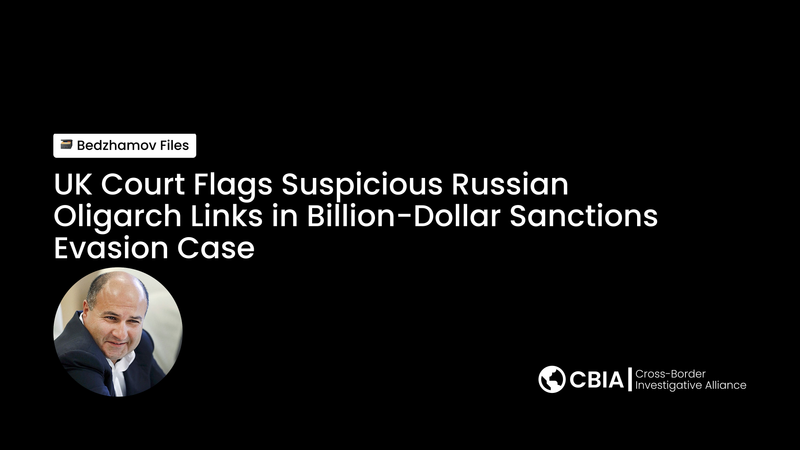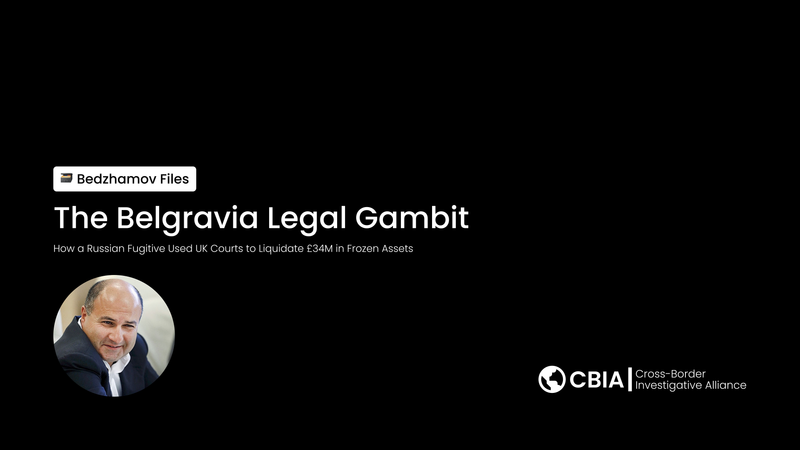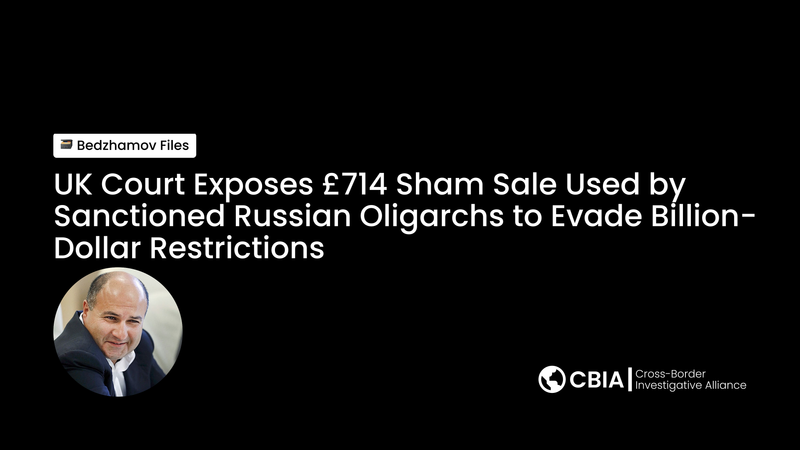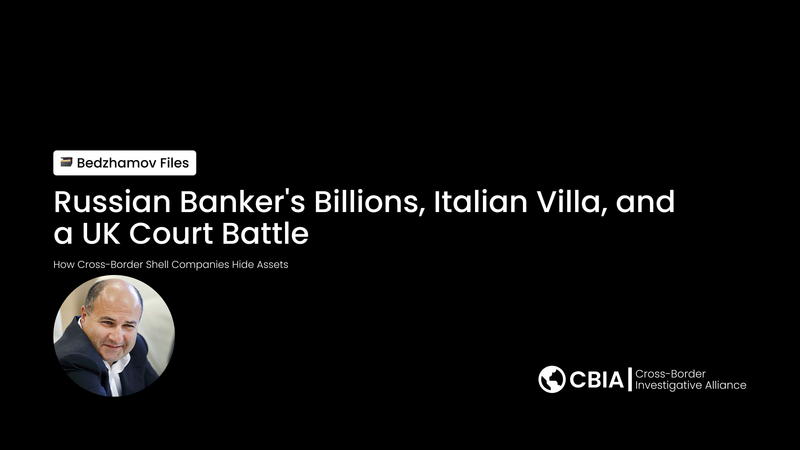How Georgy Bedzhamov Lives Lavishly in London Despite UK Sanctions
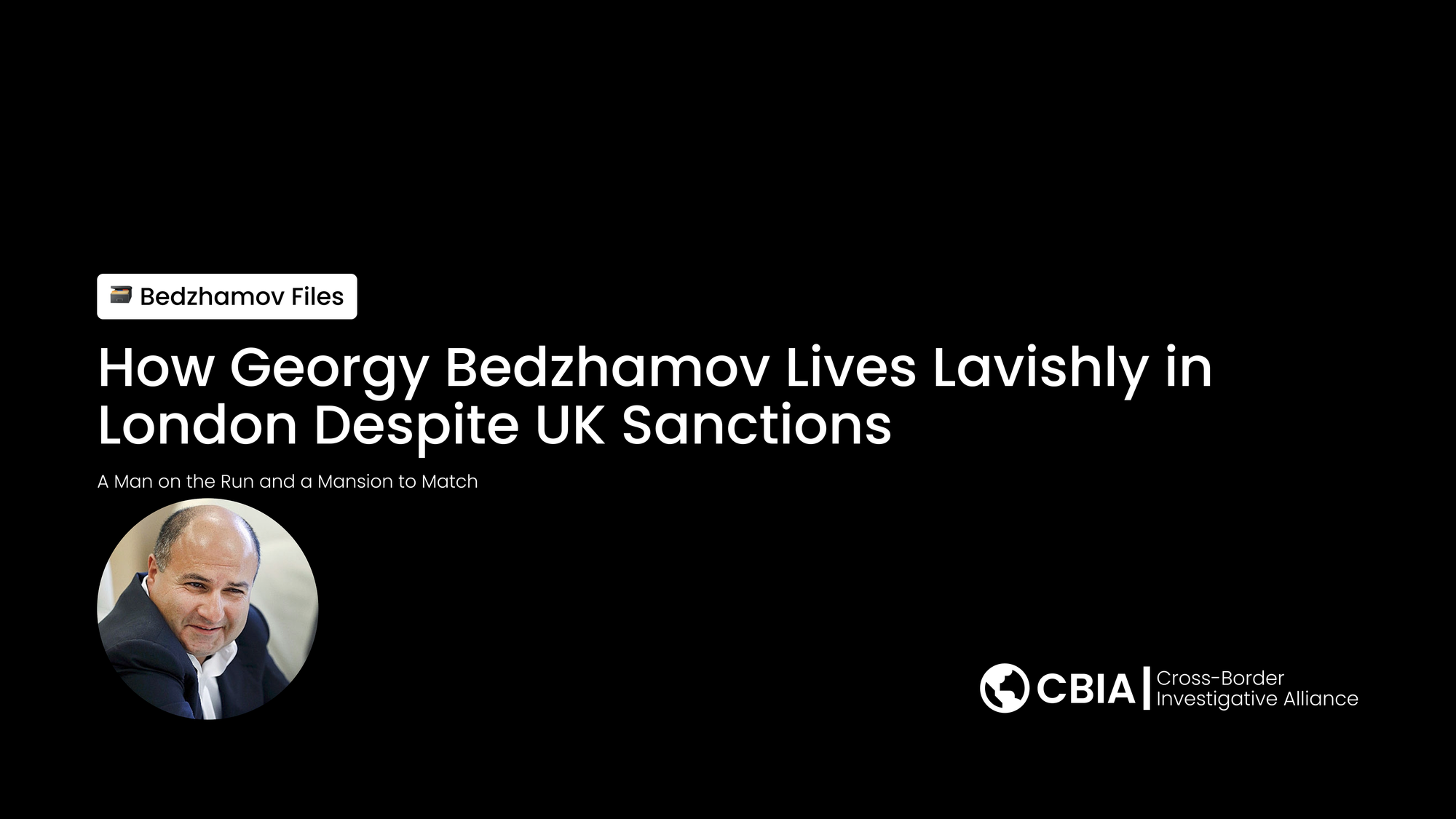
A Man on the Run and a Mansion to Match
When Vneshprombank (VPB), one of Russia’s top 50 banks, collapsed in 2015 amid accusations of massive fraud and mismanagement, an estimated $1.8 billion vanished allegedly embezzled under the leadership of Georgy Bedzhamov and his sister, Larisa Markus, who was VPB’s president at the time. Russian authorities prosecuted Markus, who received a 10-year sentence for her involvement. Bedzhamov, however, fled before charges could be filed and re-emerged in London.
He took up residence in the elite diplomatic enclave of Belgravia, specifically at 17 Belgrave Square a Grade II-listed mansion estimated to be worth £35–40 million. This opulent property, near embassies and a stone’s throw from Hyde Park, signaled that Bedzhamov’s lifestyle had not faltered, despite being a wanted figure in Russia.
Asset Freeze vs. Ordinary Living Expenses
In 2019, Vneshprombank’s bankruptcy trustee secured a worldwide freezing order from the UK High Court, totaling approximately £1.34 billion. The order was intended to restrict Bedzhamov from disposing of or using his known global assets. However, the UK courts granted Bedzhamov access to significant monthly allowances first £80,000, then rising to between £165,000 and £240,000. These funds were justified under the legal principle that freezing orders must not prevent a defendant from meeting their "ordinary living expenses," including rent in London, upkeep of a residence in Monaco, security services, tuition fees for his children, and legal representation.
While the court’s decisions align with existing case law on asset freezes, the sums involved and the lifestyle maintained have sparked public scrutiny, especially when measured against the allegations of large-scale fraud.
Selling Assets to Fund Defense
In May 2022, Bedzhamov successfully argued before the court for permission to sell several Belgrave Square properties to cover legal costs. The properties, when fully sold, were projected to bring in up to £75 million. From this, around £12 million would be used to settle outstanding legal fees, including £5 million owed to Mishcon de Reya and another £5 million to Greenberg Traurig.
This judicial concession legally enabled Bedzhamov to convert frozen real estate into liquid funds to sustain his defense strategy a move seen by some as paradoxical, as it empowers the defendant to challenge the system using resources tied to the alleged misconduct.
Immunity from Russian Claims: The Immoveables Rule
A landmark UK Supreme Court ruling in Kireeva v Bedzhamov (2024) underscored the application of the “immoveables rule.” The court ruled that English law does not permit enforcement of Russian bankruptcy proceedings against real estate located in England.
This doctrine, rooted in sovereignty and private international law, means Bedzhamov’s UK properties remain insulated from recovery efforts initiated by Russian insolvency practitioners. The case highlighted the challenges of cross-border asset recovery and the UK’s judicial reluctance to enforce foreign insolvency decisions, even where fraud is alleged.
Gaps in Sanctions Enforcement
In May 2024, the UK High Court clarified a pivotal aspect of sanctions law: liability or enforcement under asset freeze regimes depends on proven ownership or control not mere association or suspicion.
One key revelation involved A1 LLC, an entity previously connected to funding Bedzhamov’s litigation. Despite indications that A1 was likely under the control of sanctioned individuals, it escaped liability, as the court required a higher evidentiary threshold to establish actual control.
This case exposes structural vulnerabilities in the UK’s sanctions enforcement framework specifically, its reliance on formal ownership rather than beneficial control or economic interest.
Systemic Loopholes: From Lite Enforcement to Oligarch Safe Haven
Several systemic weaknesses have enabled individuals like Bedzhamov to navigate, and at times exploit, the UK's legal framework:
- Judicial concessions for lavish spending: Courts consistently uphold the right to preserve a defendant’s standard of living, which in white-collar cases often includes multi-million-pound expenses.
- Rigid interpretation of the immoveables rule: The UK’s stance on not enforcing foreign bankruptcy rulings against domestic property continues to shield substantial assets from rightful claimants abroad.
- Legal gaps in sanctions enforcement: The standard of “actual control” over assets leaves loopholes for individuals to sidestep accountability by using layered or proxy ownership structures.
These weaknesses raise broader concerns about the UK’s role as a haven for illicit capital, especially from politically exposed persons and sanctioned oligarchs.
The Human Toll
While Bedzhamov accesses top-tier legal counsel and resides in one of London’s most exclusive neighborhoods, the victims of the Vneshprombank collapse ranging from retirees and families to small business owners have largely seen no restitution.
For them, the freeze orders and court battles have yielded little in terms of recovery. Anti-corruption watchdogs argue that this outcome not only fails the victims but also signals to kleptocrats that the UK remains a welcoming jurisdiction for wealth preservation, even when tied to financial crime.
A Call for Reform
In light of this and similar cases, legal experts, civil society groups, and policy advisors are calling for a multi-pronged reform approach:
- Introduce legislative reforms to limit extravagant expenditures from frozen assets.
- Reconsider and potentially revise the immoveables rule, especially in cases involving transnational fraud and insolvency.
- Strengthen sanctions enforcement by prioritizing beneficial ownership and economic control over narrow definitions of legal title.
Without meaningful reform, the UK risks further entrenching its global reputation as a magnet for opaque wealth structures and sanctioned individuals evading justice.
Conclusion
The Georgy Bedzhamov case exemplifies a broader paradox at the heart of the UK legal system. While committed to due process and individual rights, the current legal infrastructure simultaneously permits sanctioned individuals to sustain luxury lifestyles and resist accountability. Until asset freezes, sanctions law, and cross-border cooperation are more rigorously structured, figures like Bedzhamov will continue to find sanctuary and strategy within the UK's elite enclaves.Sources & References:


